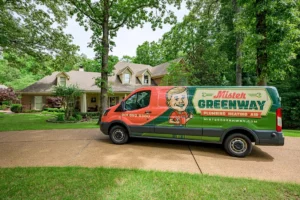Home vs Public: The Real Cost of Charging Your EV
I never thought I’d become the “EV guy” at work, but after three years of driving electric, everyone comes to me with their charging questions. The most common one? “Is it cheaper to charge at home than at those stations popping up everywhere?”
The short answer is yes, usually by a mile. But as someone who’s charged in everything from fancy garages to sketchy parking lots during snowstorms, I can tell you there’s a lot more to consider. Let me break down what I’ve learned the hard way so you don’t have to.
The Home Charging Advantage
When you charge at home, you’re cutting out the middleman. You’re paying directly for the electricity at the same rate you pay to run your dishwasher or power your TV. There are no markups, service fees, or “we built this charging station, so you’re gonna pay for it” premiums.
Most of us pay between 13 and 20 cents per kilowatt-hour (kWh), depending on where we live. I’m in the Midwest and pay about 14 cents. So when I charge my Kia EV6 with its 77 kWh battery from nearly empty, I’m looking at roughly $10.80 for a full charge. That gets me about 300 miles of range—basically a week of commuting and errands.
The best part? I plugged in a smart charger that automatically starts charging at 11 PM when my utility switches to off-peak rates. I dropped my per-kWh cost to 9 cents without changing anything else about my routine. That same full charge now costs me under $7.
Last year, I finally bit the bullet and installed a Level 2 charger in my garage. Before that, I used the regular wall outlet (Level 1), which was painfully slow—like watching paint dry. The Level 2 charger was absolutely worth it. I can now charge fully overnight instead of needing two full days. This is a total game-changer when you forget to plug in until the night before a road trip (which I’ve done more times than I care to admit).
The Public Charging Reality Check
Don’t get me wrong – public chargers are lifesavers on road trips. But convenience doesn’t mean cheap.
I learned this lesson on a trip to Denver last summer. I pulled into a ChargePoint station downtown, tapped my card, and didn’t think twice. That 30-minute charge cost me nearly $18. When I checked the fine print, they were charging 43 cents per kWh, plus a $1.50 “session fee.” Highway robbery? Maybe. But I needed the juice, and they knew it.
Level 2 public chargers typically run between 25 to 45 cents per kWh. Those DC fast chargers (Level 3) that can get you to 80% in 30 minutes? They’ll hit your wallet at 50 cents per kWh or higher. Some stations have even switched to per-minute charging, which is a whole other headache, especially if your car charges slower than newer models.
And don’t even get me started on idle fees. I once went into a store for “just five minutes” after my car finished charging and came out to find an extra $4 tacked onto my bill. Those idle fees can be as high as $1 per minute at some stations. Trust me, they add up fast.
When to Call the Professionals
I tried installing my first charger myself. Big mistake. Turns out electrical work isn’t as straightforward as YouTube makes it seem, especially when you’re dealing with the kind of power an EV charger needs. After nearly frying my panel (and possibly myself), I called in the pros.
You should consider calling an electrician if:
- You’ve just bought your first EV and aren’t sure what your home needs
- Your house is older (like mine – built in 1978) and might need panel upgrades
- You keep tripping breakers when running multiple appliances
- You want to take advantage of tax credits and rebates (some require professional installation)
- You want the peace of mind knowing your garage won’t burn down while you sleep
A good electrician will do a proper load calculation first. My house technically had enough total amperage, but the electrician pointed out that my panel was already running close to capacity during peak times. We ended up installing a 50-amp dedicated circuit for the charger and moving some other circuits around to balance the load. Money well spent.
What to Expect During Installation
When you hire professionals, here’s typically what happens:
- First, they’ll check out your electrical panel to see if it can handle an EV charger. My 100-amp panel was borderline, but doable. If you have an older 60-amp service, you might need an upgrade.
- Next, they’ll figure out the best route to run wiring from your panel to where you want the charger. In my case, the panel was on the opposite side of the house from the garage, which added some complexity and cost.
- Then comes the paperwork – permits and making sure everything meets local codes. This part is boring but important. My city required an inspection after installation, which the electrician handled.
- The actual installation took about 4 hours. They mounted the charger, ran conduit along the basement ceiling, connected everything, and tested it thoroughly.
- Finally, the electrician walked me through how to use the charger, set up the app, and program the charging schedule. This part was actually really helpful, as the manual was about as clear as mud.
Quick Answers to Common Questions
Will I really save money charging at home?
Absolutely. Even with higher initial setup costs, home charging typically pays for itself within a year compared to regular public charging.
Do I need a special electricity plan for my EV?
Not necessarily, but it helps. Check if your utility offers time-of-use plans or EV-specific rates. I save about 35% by charging during off-peak hours.
How long does a Level 2 home charger take?
My charger adds about 25-30 miles of range per hour. I plug in around 8 PM most nights and by morning, I’m back to 100%. For context, the standard wall outlet (Level 1) only added about 4 miles per hour.
Is fast charging bad for my battery?
Occasional fast charging is fine, but doing it daily can reduce battery life over time. It’s like running a sprint versus a marathon – fine occasionally, but not as your regular routine.
Is the installation mess worth it?
Yes. The convenience of waking up to a full “tank” every morning is something I can’t put a price on. No more detours to charging stations or waiting around in parking lots.
The Bottom Line
Public charging has its place. I use it on road trips and occasionally when I’m out and need a top-up. But for day-to-day life, home charging wins by a landslide – both for convenience and cost.
My advice? Get quotes from a couple of electricians who have specific experience with EV chargers. Not all electrical contractors understand the nuances of these systems yet. Ask other EV owners in your area for recommendations.
Yes, there’s an upfront investment. But as someone who’s been through the whole process, I can tell you it’s absolutely worth it. I haven’t visited a public charger in my own city for over eight months now, and both my wallet and my schedule are better for it.
Because at the end of the day, convenience shouldn’t have to cost extra – and with home charging, it doesn’t have to.

